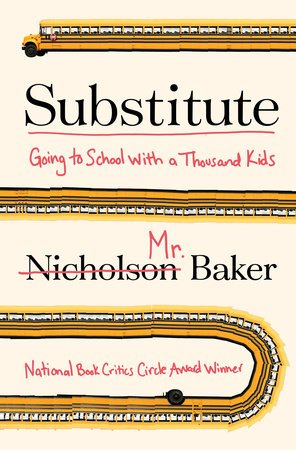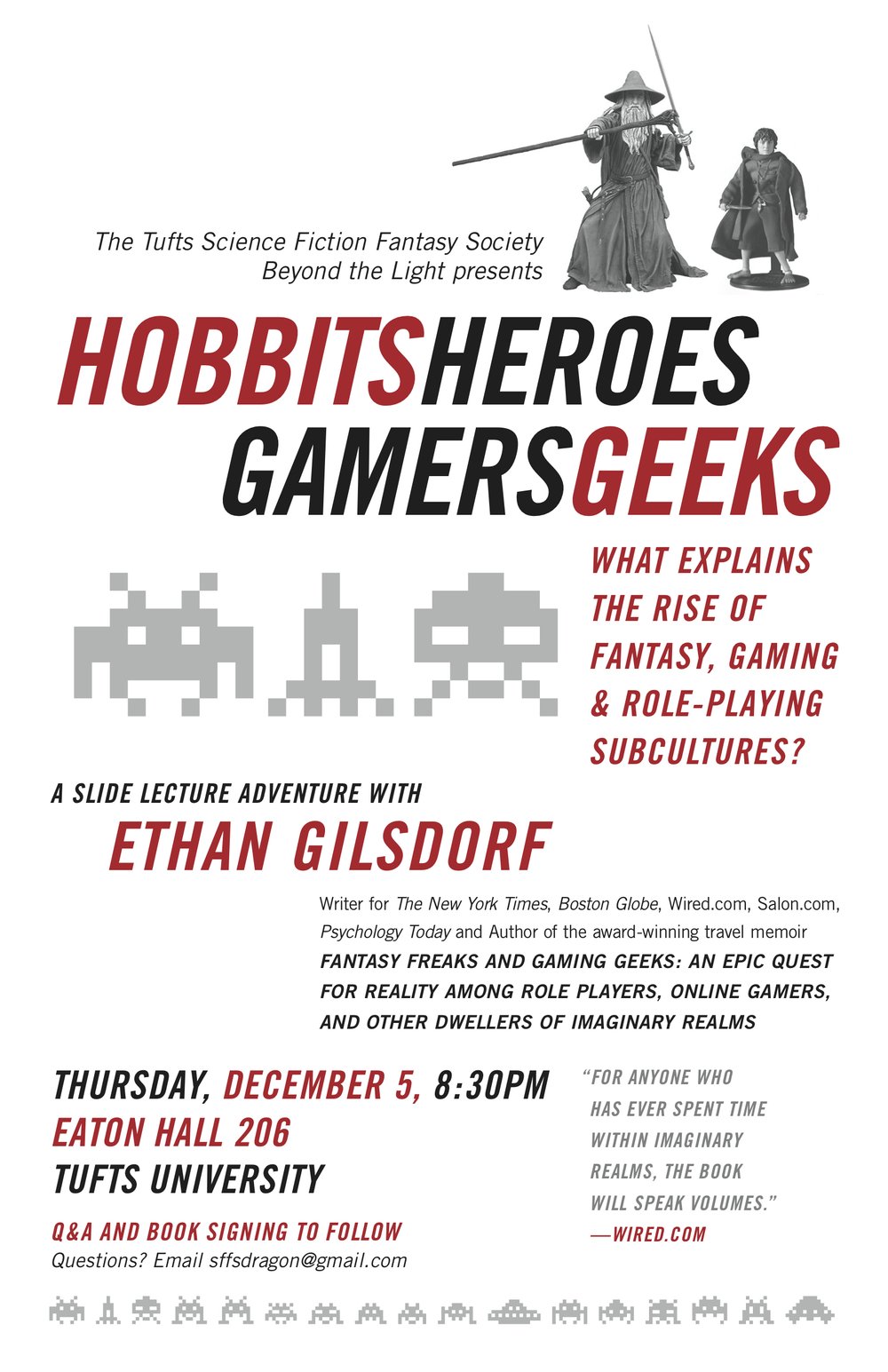Nicholson Baker and “Substitute: Going to School With a Thousand Kids”
 Nicholson Baker --- “Vox,” “The Fermata,” and “Human Smoke” -- has a new book called “Substitute: Going to School With a Thousand Kids,” which chronicles his stint substitute teaching in Maine’s elementary, middle and high schools. I get a chance to talk to Baker about his book for the Boston Globe.
Nicholson Baker --- “Vox,” “The Fermata,” and “Human Smoke” -- has a new book called “Substitute: Going to School With a Thousand Kids,” which chronicles his stint substitute teaching in Maine’s elementary, middle and high schools. I get a chance to talk to Baker about his book for the Boston Globe.
A Slide Lecture Adventure
 Thursday Dec 5 I'll be reading / presenting/ geeking out at Tufts University, thanks to an invitation from the Tufts student Science Fiction Fantasy Society.
Thursday Dec 5 I'll be reading / presenting/ geeking out at Tufts University, thanks to an invitation from the Tufts student Science Fiction Fantasy Society.
Thursday Dec 5 I'll be reading / presenting/ geeking out at Tufts University, thanks to an invitation from the Tufts student Science Fiction Fantasy Society, mysteriously called "Beyond the Light." I'll be showing some slides about my adventures through geekery and fantasy and gamery worlds. There will be a trivia contest, and some give-aways, and I'll sign books afterwards. I even heard there will be grub! Yee haw. Looking forward to it. Free and open to the public, too. More info here on my events page.
The pitfalls of using science to prop up literature

""Hi, I’m lit-fitness celebrity JK Rowling. If you’re busy like me, then stay tuned because I’m excited to share with you the most innovative piece of emotional and interpersonal exercise equipment ever. I’m talking about the fastest, easiest way to make lightning-fast decisions and get your empathy into its best shape ever. ... Introducing, the great American novel."

"Hi, I’m lit-fitness celebrity JK Rowling. If you’re busy like me, then stay tuned because I’m excited to share with you the most innovative piece of emotional and interpersonal exercise equipment ever. I’m talking about the fastest, easiest way to make lightning-fast decisions and get your empathy into its best shape ever. ... Introducing, the great American novel."
We’ve always agreed that books are fun, diversionary, and entertaining. Now they are apparently as good for you as a bowl of bran flakes and a jog around the park.
There's a spate of new studies and research supporting what we’ve suspected all along: Reading is good for you. (Thanks, Mom.)
On one level, this is good news. I mean, who should be grumpy about research helping to boost the cultural relevance of an art form?
But on another level, I’m skeptical, and a little depressed, by this new kind of literary analysis. (I also think post-structuralist, Marxist, feminist, post-colonialist, and deconstructionist literary theories take the joy out of literature, but that’s another rant.) Is relying on laboratory research to tell us books make us better human beings a positive development?
In my lastest post for the WBUR blog "Cognoscneti," I argue that all these new studies showing that reading good literature is scientifically beneficial to us is, well, kind of depressing, taking all the mystery and magic out of reading. Check out the full post here.